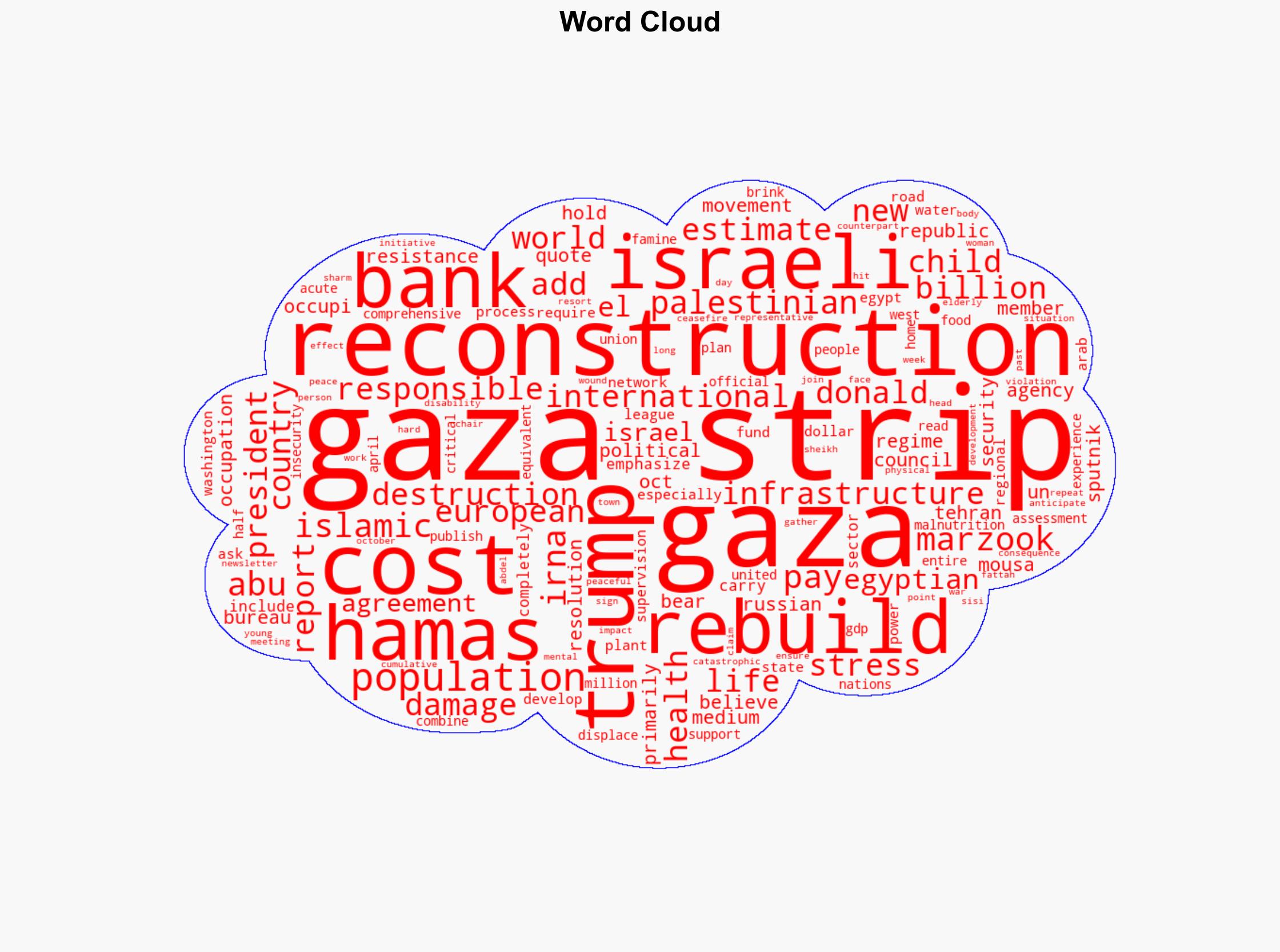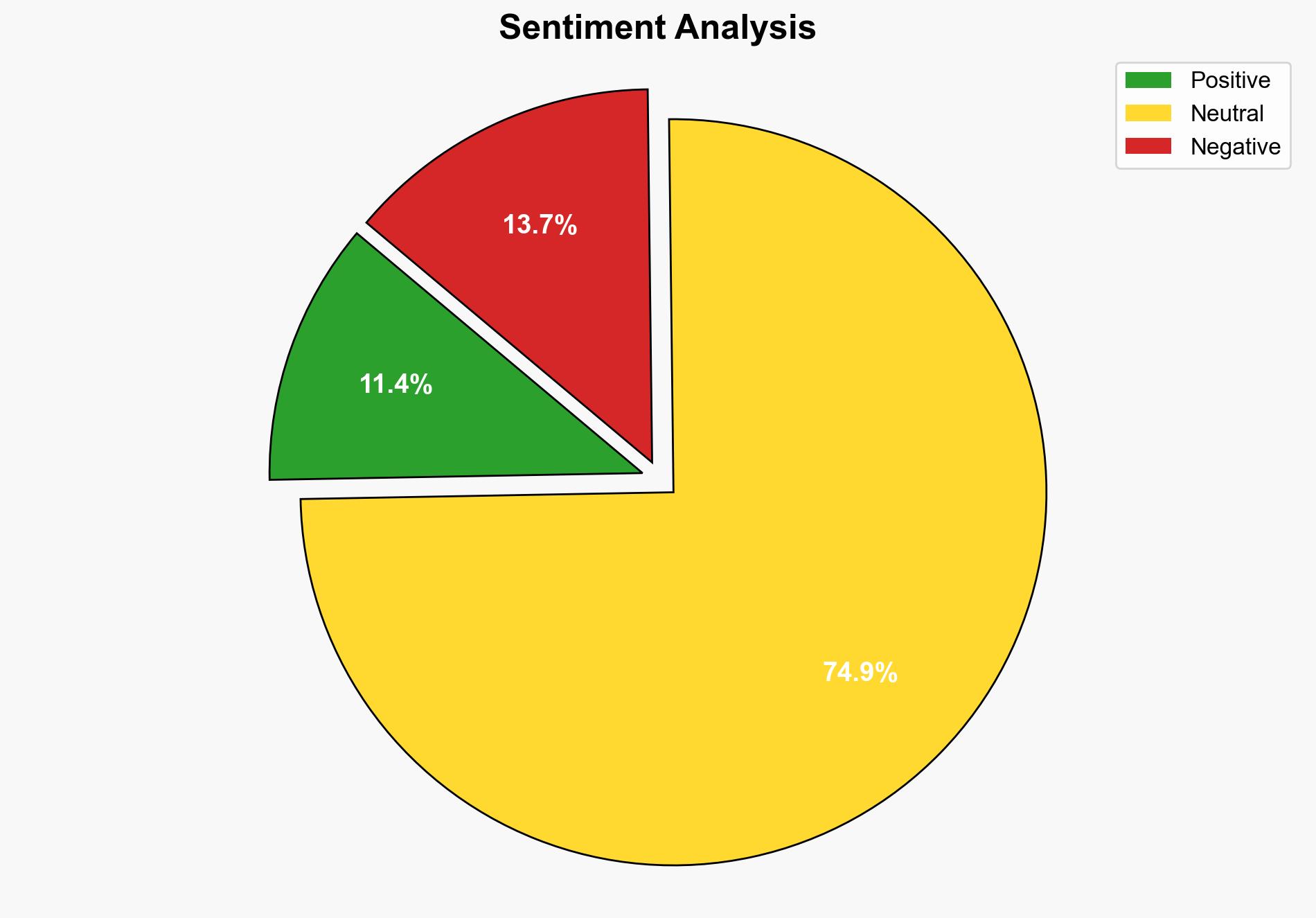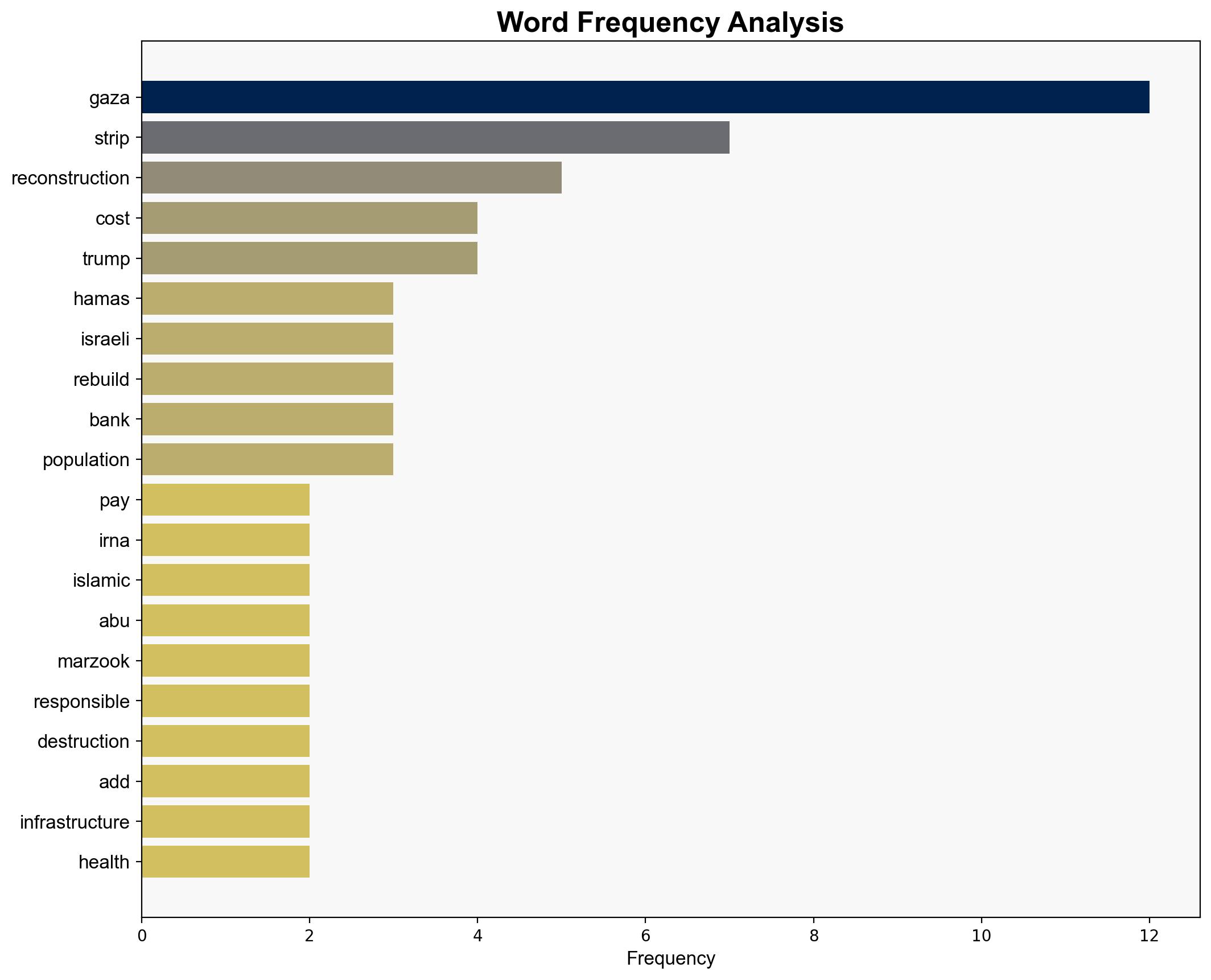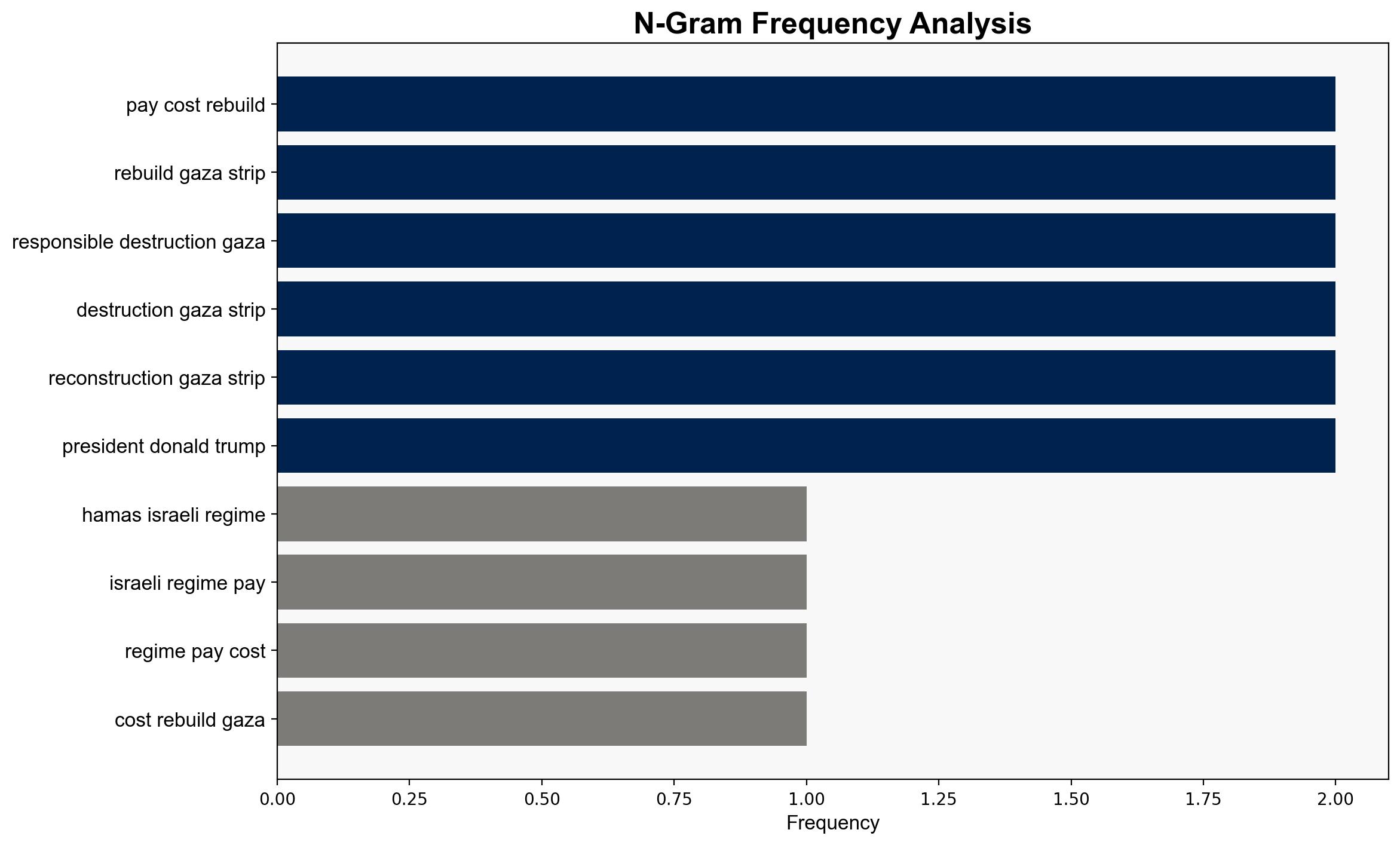Hamas Israeli regime must pay cost of rebuilding Gaza Strip – Globalsecurity.org
Published on: 2025-10-22
Intelligence Report: Hamas Israeli regime must pay cost of rebuilding Gaza Strip – Globalsecurity.org
1. BLUF (Bottom Line Up Front)
The strategic judgment is that Hamas’s demand for Israel to bear the cost of rebuilding the Gaza Strip is primarily a political maneuver to shift international pressure onto Israel and gain broader support. The most supported hypothesis is that this demand is unlikely to result in Israel shouldering the reconstruction costs without significant international mediation. Confidence level: Moderate. Recommended action: Encourage diplomatic engagement through international bodies to facilitate a comprehensive reconstruction plan that includes multiple stakeholders.
2. Competing Hypotheses
1. **Hypothesis A**: Hamas’s demand is a strategic move to gain international sympathy and pressure Israel into concessions. This hypothesis suggests that Hamas is leveraging the humanitarian crisis to shift blame and responsibility onto Israel, aiming to galvanize international support and potentially secure more favorable terms in future negotiations.
2. **Hypothesis B**: The demand is a genuine expectation that Israel, as the occupying power, should bear the reconstruction costs. This hypothesis assumes that Hamas believes international law supports their claim and that there is a realistic expectation for Israel to comply, especially with international pressure.
Using the Analysis of Competing Hypotheses (ACH) 2.0, Hypothesis A is better supported due to historical patterns of similar demands being used as leverage rather than resulting in direct action by Israel.
3. Key Assumptions and Red Flags
– **Assumptions**:
– Hypothesis A assumes that international bodies will be sympathetic to Hamas’s framing of the issue.
– Hypothesis B assumes that international law and pressure will compel Israel to act.
– **Red Flags**:
– Lack of direct statements from Israel regarding their stance on reconstruction costs.
– Potential bias in the source, given its origin from the Islamic Republic News Agency.
– Absence of detailed international response plans or commitments.
4. Implications and Strategic Risks
– **Economic**: Prolonged reconstruction delays could exacerbate economic instability in Gaza, increasing reliance on international aid.
– **Geopolitical**: Failure to address reconstruction could lead to heightened tensions and potential for renewed conflict.
– **Psychological**: Continued hardship may fuel radicalization and undermine moderate voices within the region.
5. Recommendations and Outlook
- Encourage multilateral discussions involving the UN, EU, and regional powers to develop a comprehensive reconstruction plan.
- Scenario-based projections:
– **Best Case**: International consensus leads to a collaborative reconstruction effort, stabilizing the region.
– **Worst Case**: Stalemate leads to further conflict and humanitarian crisis.
– **Most Likely**: Partial reconstruction with international aid, but ongoing political tension.
6. Key Individuals and Entities
– Mousa Abu Marzook
– Donald Trump
– Abdel Fattah el-Sisi
7. Thematic Tags
national security threats, geopolitical strategy, humanitarian crisis, regional stability





